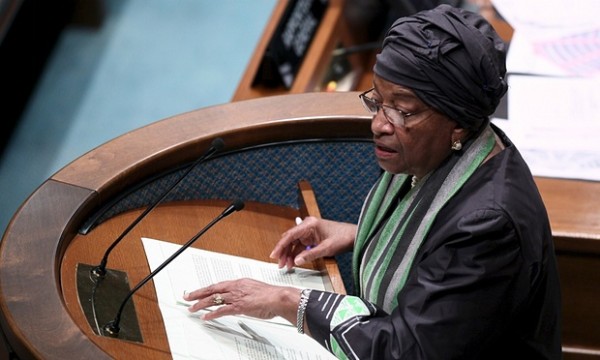PBS: Escaping Eritrea … [Read More...] about ካብ ውሽጢ ቤት ማእሰርታት ኤርትራ
Addis delegates failed to put money where mouth was on gender equality
Ana Ines Abelenda and Nerea Craviotto,
World leaders at the development finance summit may have paid lip service to women’s rights, but the Addis Ababa action agenda tells a different story
The UN development finance summit in Addis Ababa was disappointing. Member states failed to address a host of flaws in international financial policy that, tackled effectively, could have done much for human rights, especially women’s rights and gender equality.
The final agreement, known as the Addis Ababa action agenda, is almost entirely devoid of specific proposals that can be swiftly implemented, and fails to rise to the world’s multiple challenges.
The women’s working group on financing for development said the talks had damaged the integrity of the development finance agenda, retreating from commitments made on several issues at previous conferences in Monterrey and Doha.

The group added that the chance to remove global obstacles to development and set the right priorities, policies and rules for financing the sustainable development goals – as well as the full implementation of other internationally agreed development agendas, such as the Beijing platform on gender equality and the Cairo programme of action on population growth and development – had been missed.
There is strong evidence that a lack of regulation in the financial sector is one of the primary causes of economic crises such as the 2008 global financial crash, which resulted in greater inequality and instability throughout the world and particularly affected women in the global south.
A 2009 UN conference on the effect of the financial crash on development made recommendations and commitments to prevent future crises, yet none of these were factored into the Addis agenda. Instead, the new accord continues to promote the International Monetary Fund as the only international safety net for global stability.
The Addis agenda may pay lip service to women’s rights and gender equality, but in reality it seeks to make the contribution of women to the global economy predominantly about growth and productivity.
Rather than encouraging states to remove obstacles to development, mobilise official development assistance and commit adequate public resources, this approach puts the emphasis on private sector contributions.
As a result, little attention is given to structural barriers to women’s economic rights or their ability to access, own and control economic resources. The unequal distribution of unpaid care work, poor access to health care services and natural resources, persistent gender discrimination in the labour market – all went largely ignored by the Addis delegates.
There was a big push at the conference for the recognition of strong public finance as the most important source of development funding. Taxation is key to raising funds to build comprehensive social protection systems that provide universal access to quality social services.
However, the resistance shown by OECD countries to the creation of a UN intergovernmental tax body has been unacceptable – it is their multinationals that lead the list of tax avoiders, after all – and reasserts the current undemocratic and unfair status quo.
In addition, many OECD governments are shying away from aid commitments, preferring instead to rely on private sector contributions in the form of foreign direct investment and public-private partnerships. Again, this is problematic.
As the women’s working group argues, private sector activities, including public-private partnerships, are promoted in the Addis agenda with scant regard for accountability mechanisms to uphold human rights standards, including environmental and social safeguards. Moreover, insufficient attention has been paid to the cost of public-private partnerships and the quality of services and infrastructure they will deliver.
This is a real problem: imagine a company partners with a government to provide economic opportunities for women through garment production. Is this a step forward if the women are employed on the lowest salary scale, with no social protection, while the company pays little or no tax in the country where the business is based?
That is why the UN human rights council’s rather marginalised efforts to develop an international legally binding instrument on transnational corporations needs stronger recognition.
As we mark the 20th anniversary of the Beijing platform, with critical areas still lagging, it is unacceptable that developed countries are not committing to scale up their share of overseas development assistance for achieving gender equality.
As Dinah Musindarwezo, executive director of Femnet, told participants in Addis: “Political will to gender justice and women’s rights is not matched by the needed resources in the (Addis agenda) text”.
We welcome the commitment in the Addis accord to track and report resource allocation for gender equality and women’s empowerment, but the funds are still insufficient. Feminists and women’s rights organisations have proven the importance of their work on the ground and need to be adequately resourced.
Whether the Addis agenda represents another missed opportunity for building a better global framework for development finance – one that works towards the achievement of women’s rights and gender equality – will become clear only with time.
Even at this early stage, the future does not look too promising. But maybe the Addis agenda will at least open the door to advocacy for those of us who harbour high ambitions for change.
Ana Ines Abelenda is economic justice coordinator for the Association for Women’s Rights in Development; Nerea Craviotto is the organisation’s resourcing women’s rights lead advocacy coordinator.
